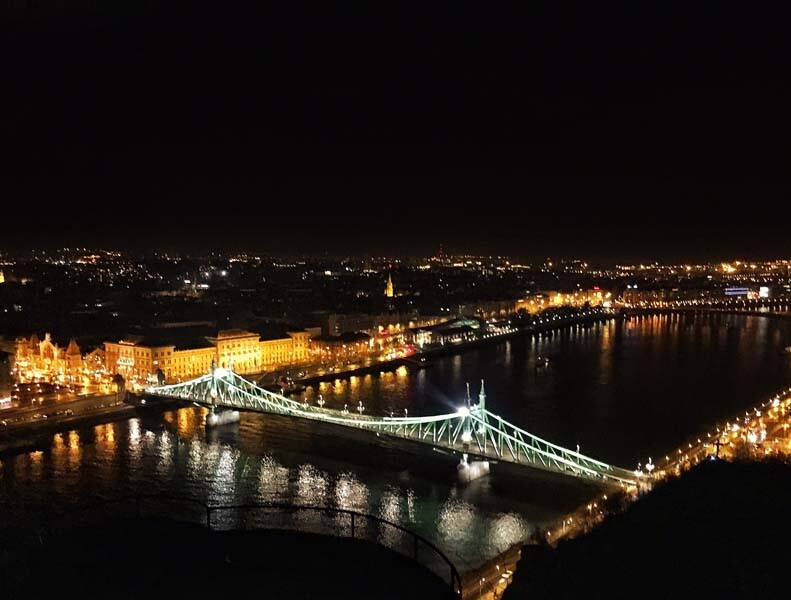
by Parker Vige
I stepped foot onto a new airplane runway and, in effect, onto Hungarian soil one month ago from today. The days between then and now have seen countless twist, turns, and detours, not unlike my Gap Year as a whole. This blog post is my way of taking you back with me down the winding road, through Budapest, which in due course leads to the coffee shop I sit in now.
Tearing down any emotional facade, I will admit after four long months away I very plainly missed my family. There could have been a no more apt remedy than having my mom and best friend visit me in likely the most breathtaking city of Eastern Europe. You can imagine how three people living in my one-bedroom flat took a toll on our cordiality, but it was a small price to pay for the relief of having love and familiarity around for the holidays. Sometimes, I was even able to forget how ridiculously tourist my mom made us look when she photographed every building, bridge, and stray soda bottle on the street.
Nevertheless, two weeks never last a lifetime and it was time for yet another goodbye of my Gap Year. Goodbye’s are such a tricky thing; there will always be heartache in losing something of today, but I take solace in knowing that there is always something new and exciting on the other side.
I wasn’t quite prepared for just how new this next “thing” would be. In my preparations for work in Budapest, the only information I was confident in was the name of my organization, Demokratikus Ifjúságért Alapítvány (DIA), and the building in which it was located. The name which you just read is of course in Hungarian, which provided me little insight into the exact work DIA was responsible for. Even translated in English, “Foundation for Democratic Youth” didn’t exactly define what was expected of me as a new intern.
I was delighted at our first meeting to find colleagues who were not only willing, but eager to work with the foreign kid from the States. I found the purpose of the organization to be this: DIA works to encourage students and teachers to learn and participate as citizens in a democracy through service, debate and social innovation. At first mention of the organization’s goals they seemed foreign to me. Coming from a home country which is hyper-protective of its freedoms and citizen responsibilities, it was difficult to understand the exact purpose and position of such an organization.
After two weeks of experiencing Budapest and working with DIA, I am beginning to understand just how important our presence is in Hungary. My responsibilities are three fold.
(1) I visit local schools and converse about my experiences living in a quasi-democratic country (Uganda) and explain the validity in fighting for democracy even when it appears as if it already exists.
(2) As a native English speaker I am often asked to proofread or create any documents needed for the English workings of the organization.
(3) Sans the many details, I will explain my more involved work. Several years ago the Hungarian government introduced a compulsory component to all secondary leaving exams where as students are now required to complete 50 hours of “service-learning”. Along with this mandate came a nasty slew of other red tape issues and messy decisions. My job is to research using surveys, articles, and interviews, what exactly is causing the breakage in the system and how DIA can work to fix it. This research is on going and will likely continue long after I leave Hungary.
My work in Budapest is a far cry from what was happening in Jinja, Uganda. I can find myself contemplating if my time and efforts are as effective here as they were two months prior in Africa. Perhaps I’m failing into self-justification, but I’ve decided that ‘yes’ they are. Experience and introspection are teaching me how problems tend to present themselves differently in various cultures and regions, but that doesn’t mean one can usurp the other. It cannot be a prerequisite for someone to starve before a problem merits a solution. I believe injustice to be injustice no matter which mask it happens to be wearing, and I also believe it our responsibility to address it.


